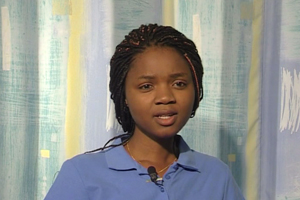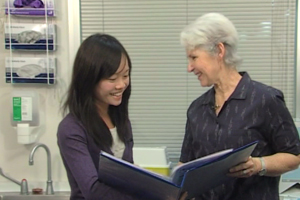Asking Questions
Effective questions provide a pathway to understanding situations, problems or issues. However, whilst most people are used to asking simple questions, particularly in social situations, it is not always easy to ask the ’right’ questions that will provide the information that is needed. In the clinical environment, there are many different kinds of interactions which involve asking questions. These include interactions with patients, family members, health professional team members to name a few. Questioning is also a very important teaching and learning strategy. Effective questioning enables supervisors to find out more about how they can help students learn. It also enables students to increase their knowledge, skills and confidence for working in the clinical environment. Some strategies that promote effective questioning include the following:
- Choosing the type of questions: Closed questions are those that require a simple one word answer such as ‘Yes’, ‘No’, ‘OK’ etc. Open questions, on the other hand, elicit a wide range of responses and open up discussion. Questioning for understanding leans towards the open-ended types of questions as much as possible. Open questions often begin with the words ‘what’, ‘when’, ‘where’, ‘why’ and ‘how’. In the context of clinical education, examples might include:
- ‘what would happen if..?’
- ‘what action/s would best protect the patient?’
- ‘what are some alternatives to ..?’
- ‘what are some of the problems with ..?’
- ‘what kind of evidence would support ..?’
- Active listening: Good questioning technique is as much about listening as it is about speaking.
- Wait time: The amount of time allowed between asking a question and requiring a response can have a powerful effect on the communication. As a rule of thumb, allow 10-15 seconds of wait time before requesting a response to a question. Read more about research on wait time…
Research on questioning and information processing indicates that we need at least three seconds to comprehend a question, consider the available information, formulate an answer, and begin to respond. This likely to be longer for people from culturally and linguistically diverse backgrounds. Research has also shown that teachers typically wait only 1.5 seconds after asking a question before intervening.
- Handling responses: The manner in which responses to questions are handled influences the quality of the outcomes. Read our Hints and Tips Sheet for more ideas.
Watch these Videos to see what students and staff have to say about asking questions. While you’re watching the videos, think about your own questioning skills and what you can learn from the information in this section that will help you ask the ‘right’ questions even more effectively.









